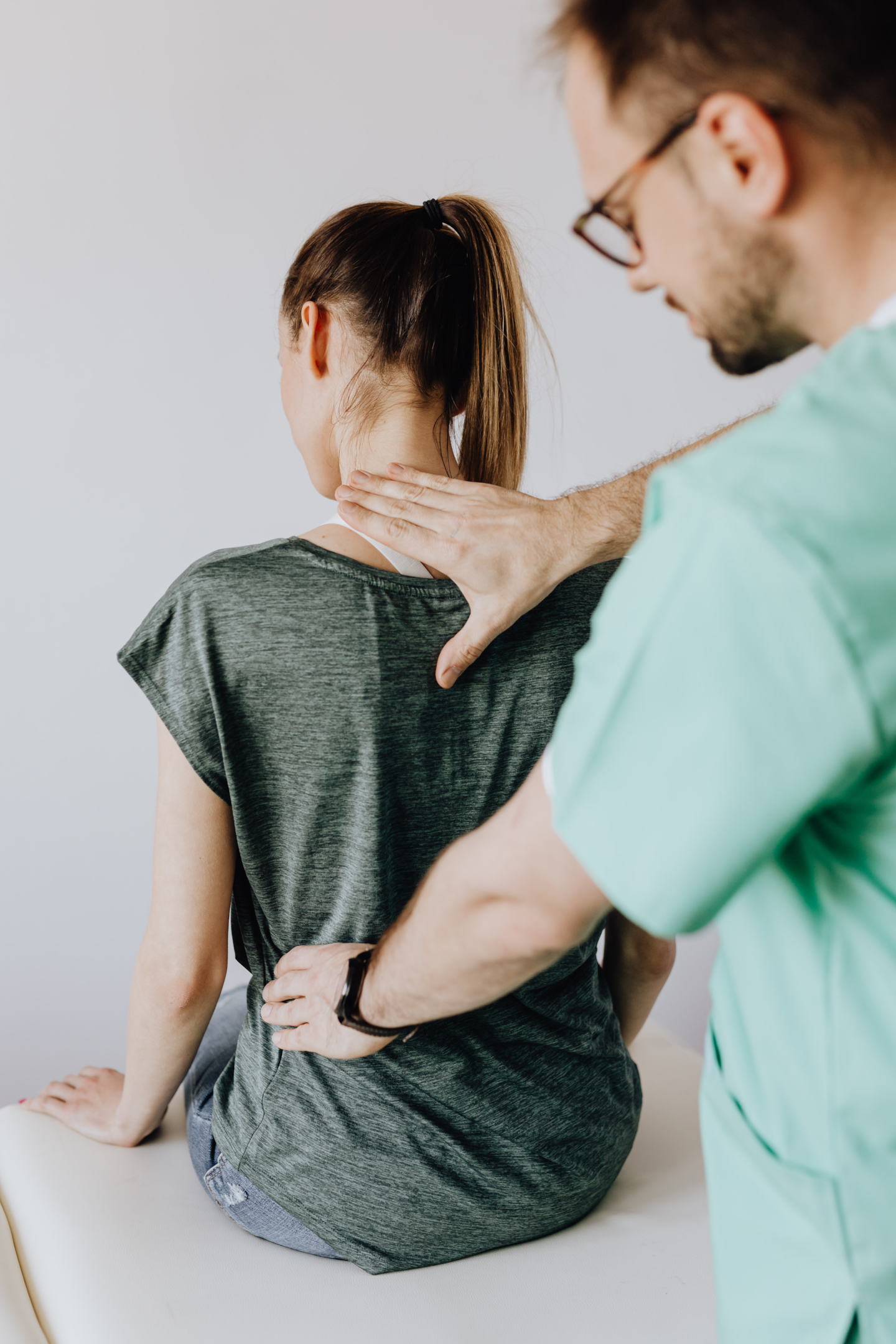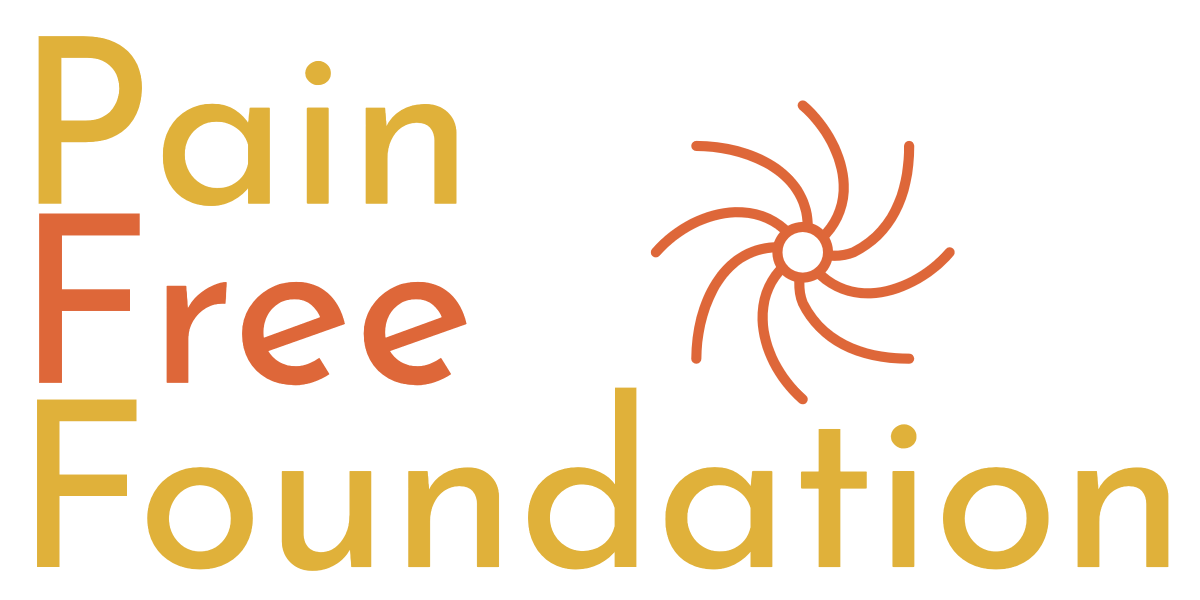Experiencing pain in any part of your body is an indicator of a misnomer in your body system that should be looked into carefully.
If you are experiencing pain in the region below your neck, you are most likely to have what is called upper back pain. While upper back pain is a less common complaint than lower back pain, it is still a cause of concern especially if it affects your daily activities.
According to research by (Niemeläinen, Videman, and Battié, 2006), upper back pain accounts for the third most reported pain, with lower back pain being the highest, and neck pain following closely.
In this article, we will look at the causes of upper back pain, and also how to relieve the pain.
What is Upper Back Pain?
To determine what causes upper back pain, we must first describe the upper back. The upper back is located below the cervical spine(neck). It runs from below the neck base down to the lumbar spine, (lower back).
The upper back is also referred to as the thoracic spine, it contains 12 bones that house the spinal cord and is connected to the rib cage. The thoracic spine offers stability to the body and has limited mobility.
Upper back pain is therefore any discomfort that occurs within the thoracic spine. It can be due to musculoskeletal pain which results from muscle strain or joint dysfunction often called myofascial pain.
Some people describe symptoms of upper back pain as a pulling sensation or burning sensation at the point where the injury or strain is. Other symptoms include stiffness, tightness, and or tenderness in the affected area.

Causes of Upper Back Pain
There are various reasons why you may experience upper back pain, they include bad posture, muscle strain, or perhaps due to traumatic injury Let’s explore some of them.
Poor Posture
This is one of the main causes of upper back pain. It often occurs when a person assumes a position that distorts the muscles of the upper back. The muscles can become either redundant hence causing weak muscles, or overstretched, hence causing muscle strain.
Poor posture can happen with bad sitting positions. For example, when someone slouches on a chair while working, the muscles are deconditioned to align with the slouching position. The deconditioned muscles weaken and will require conditioning again to relieve the pain.
Myofascial Pain
Myofascial pain is a chronic pain disorder caused by the contraction of muscles as a result of repeated motions.
It is often called muscle tension pain and can happen to any of the muscles that are associated with the upper back.
For example, a person who has to use certain back muscles to lift every time as a result of the type of work that they do may have such as pain because it is a daily occurrence.
These muscles often used become trigger points that cause upper back pain which can reverberate to other parts of the body.
Myofascial pain can get worse with time, especially when left untreated, that is why it is advised that when you have chronic pain in your thoracic spine that is not abating, then you need to see a doctor.
Improper Lifting Technique
When lifting a heavy load, it is advised that you properly align your spine by using a centered approach to lifting the load. A centered approach keeps the load being lifted at the center instead of to the left of the right.
When you lift loads with the latter, you are more likely to experience muscle injury on your upper back which may cause upper back pain.
Traumatic Injury
Traumatic injury such as a vehicular accident can cause thoracic spine pain. Any force that impacts the upper back is likely to cause upper back pain because the thoracic spine contains vertebrae, ligaments, discs, and tendons. A collision on the upper back can cause any of these ligaments to tear or even the discs to slip out (herniated discs).
A traumatic injury can cause severe upper back pain that may require therapy for it to heal.
Risk Factors
There are certain conditions that make upper back pain a possibility for some people, it may be because of lifestyle or the type of job the person does. let’s look at some risk factors for upper back pain.
Lack of Exercise
A sedentary lifestyle with little or no exercise is a common recipe for upper back pain.
When you do not exercise the muscles in your body, they lose their elasticity and become weak hence causing pain.
Excess Weight
Excessive weight puts pressure on the bones, joints, and ligaments. People with an excessive amount of weight especially around the belly will often experience upper back pain because of the weight that the thoracic region has to support.
How to Treat Upper Back Pain
Some upper back pain may resolve after a while without any treatment, while some may require some home remedies which will be mentioned below. Let’s look at ways you can relieve or treat your upper back pain.
Home Remedies
Some home remedies you can do include the application of ice to the swelling to reduce pain and also a hot-water bottle for the stiff areas to increase mobility. Other home remedies may include the use of pain relief medications like Advil, Ibuprofen, etc.

Gentle Stretch and Excercise
Some home remedies you can use to relieve pain in the upper back include gentle stretches that target stiff muscles.
You can also do posture correcting exercises like Chin Tuck, Shoulder blade squeeze, and upper back stretch.
Medical Treatment
If you are experiencing acute upper back pain that does not respond to any or all of the mentioned home remedies, you may be required to see a doctor.
Most doctors will examine you and perform some tests which may include an MRI or CT scan. They can also run blood tests to check for diseases that may be causing upper back pain.
After the tests, the diagnosis will be given and other treatment options made available to you.
Frequently Asked Questions
When Should I worry about upper back pain?
You should worry about upper back pain when it becomes acute back pain and does not respond to all home remedies prescribed above. Also when you have had a traumatic collision that precipitated the pain.
What can cause upper back pain in a woman?
A woman can suffer upper back pain due to the causes mentioned above, another cause not mentioned is pregnancy. Pregnant women suffer from joint dysfunction due to the release of a hormone– relaxin during pregnancy which causes joints to loosen.
